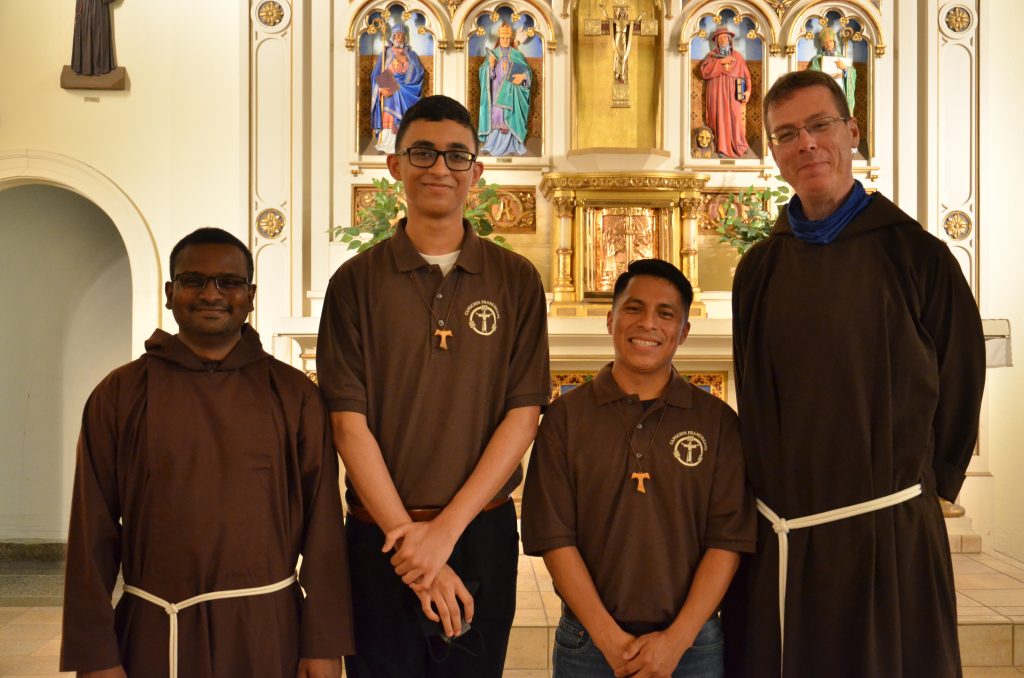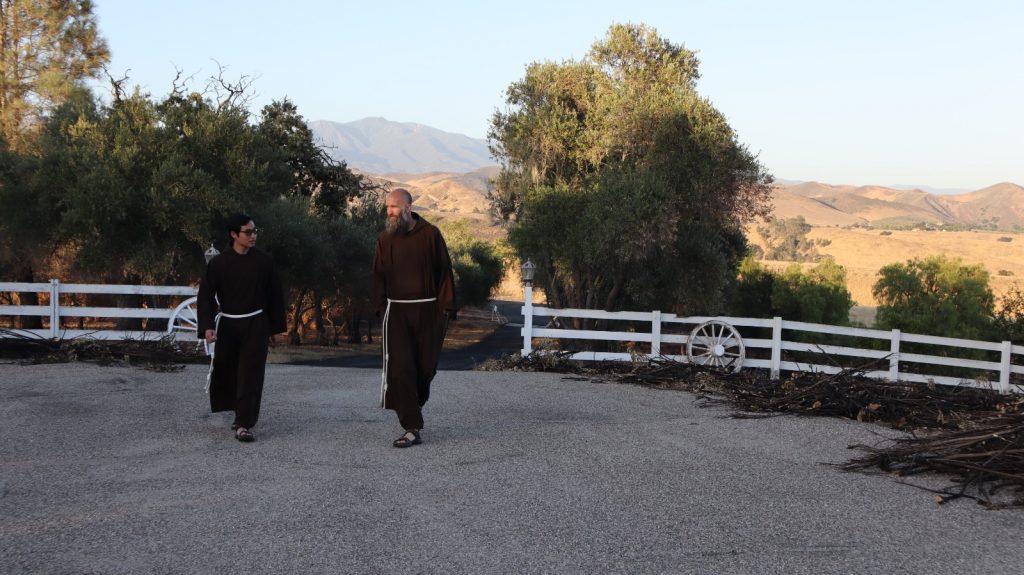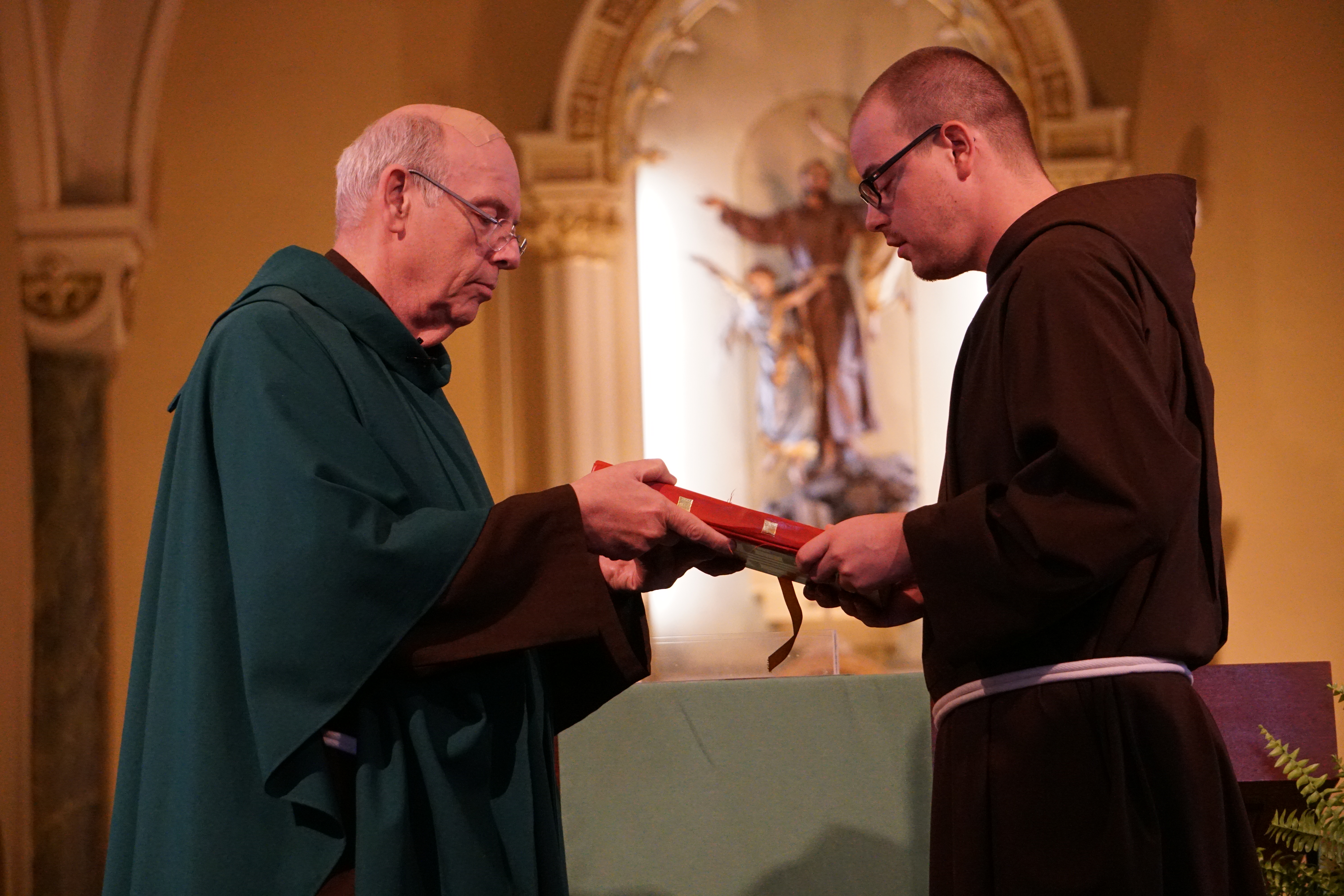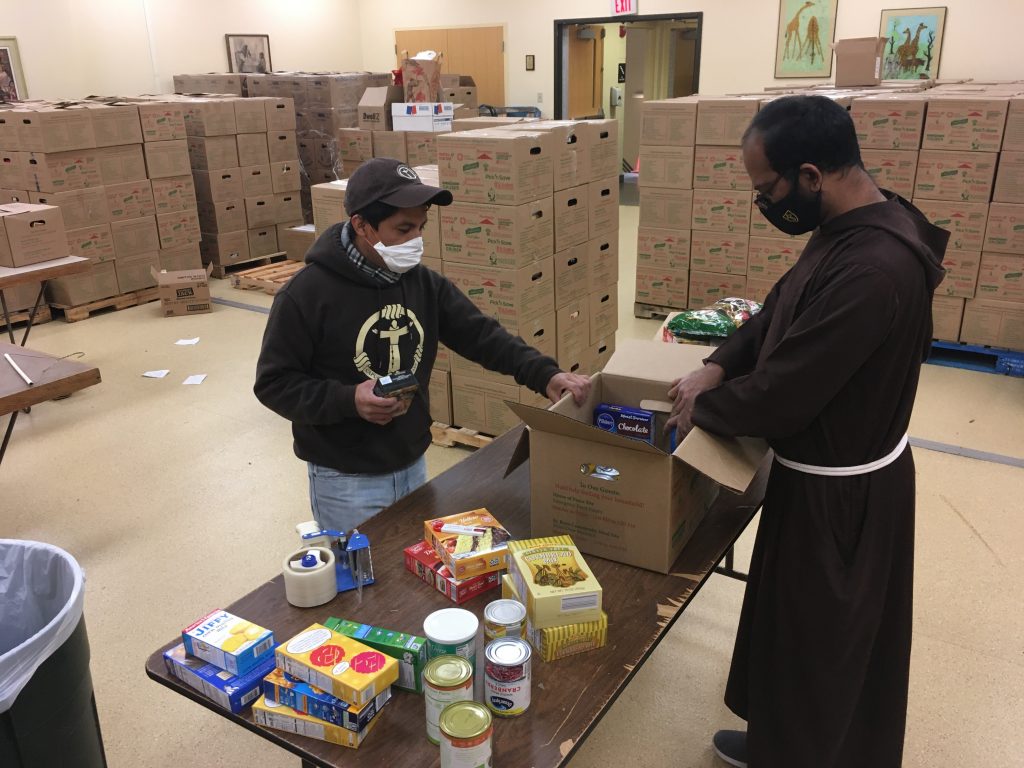Becoming a Capuchin Friar
Candidacy:
Men who are interested in the Capuchin Order take the time to learn about Capuchins, meet friars, and visit Capuchin ministries. Vocation directors are available for guidance and assistance in this process of inquiry. During this time, candidates are active in volunteer ministry and spiritual direction to help them discern the life to which God is calling them.
Candidacy has a residential and non-residential form. The non-residential program allows candidates to live, work, and study in whatever place they wish. They participate in scheduled weekends at various sites throughout the Province of St. Joseph [Upper Midwest United States] to become more acquainted with Capuchins, their way of life, and their ministries. A person can be a candidate anywhere from several months to several years.

Postulancy:
The Postulancy Program lasts for one year and is located in Milwaukee, WI. It is the first full- time, residential program for someone entering the Capuchin Order.
Postulants spend 20 hours a week in ministry with the poor. Shelters for the homeless, soup kitchens, nursing homes, parish ministry, educational opportunities for children in poverty are just a few examples. Another 20 hours are spent receiving input, reflecting together on experiences, or studying privately. Input during Postulancy includes the life and writings of St. Francis of Assisi, basic catechesis in the Catholic faith, Liturgy of the Hours and community prayer, Eucharist, and social analysis and theological reflection on experiences with the poor.
The province treats postulants as members of the Capuchin Order, even though they have not professed vows. The Capuchins assume financial responsibility for members at this point for as long as they remain in formation and in the Capuchin Order. With successful completion of the year, postulants move into a year of novitiate.
Novitiate:
Like postulancy, novitiate is a one-year residential program. But while postulancy is a time of intense ministry experience, novitiate provides the environment in which one is more reflective on his life in the Capuchin Order in preparation for first profession of vows poverty, chastity, and obedience at the completion of the novitiate year. The novitiate house is located in Santa Inez, California.
During this year, novices from across the US and from other English-speaking countries come together to have a common novitiate. This shared experience with different Capuchin provinces exposes friars to the wider Order, while also sharing traditions and history with each other to expand their understanding of being a friar.
Novices offer six hours of volunteer ministry each week. They also spend 20 hours weekly in classroom and private instruction. Topics include the history of spirituality, the history of religious life, the Capuchin Constitutions, the lay Franciscan movement, personal prayer forms, and the history of the Franciscan First Order [men] and the Poor Clares the Second Order.
Novices practice a rich prayer life as they further discern their vocation. Novitiate concludes with the profession of temporary (lasting for one year) vows of poverty, chastity, and obedience.


Post Novitiate:
Post-novitiate begins with the profession of temporary “first” vows. In this time of post-novitiate formation, a Capuchin friar lives what he has learned through postulancy and novitiate. It is an extended time of prayer, reflection, and final decision-making prior to professing perpetual [lifelong] vows. Most men in post novitiate formation use this time to further prepare themselves for ministry, including priesthood.
During this time, post-novices live in Chicago while attending school. Because we are not diocesan priests, each friar looks at their individual gifts and talents, and pursues an education that can best benefit the Order, the Church, and the community at large. This is also a time for exploring the other cultures in preparation for ministry. Whether it’s learning another language, spending an extended period of time in a different community, or bringing one’s own culture into the Capuchins, the ability to explore other cultures enriches the Order while preparing post-novices to work in various settings.
With the completion of each year of post-novitiate formation, a friar renews his temporary vows for another year. This process of renewal continues for anywhere between three and six years until a friar is ready to commit himself to live the vows of poverty, chastity, and obedience for the rest of his life in “perpetual vows”.

